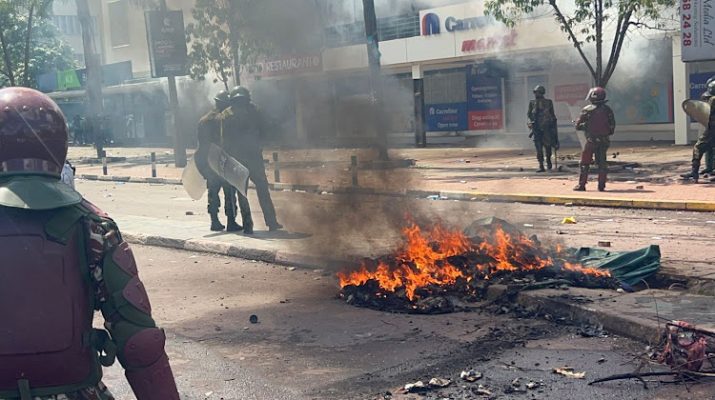By Victor Njuru
Thursday morning saw Nairobi swollen with anti-riot police who blocked all avenues leading to State House Nairobi to avoid any of the Gen Z led demonstrations aimed at the controversial Finance bill 2024/25.
The current action is the result of increased tension after the bill progressed through Parliament with many citizens protesting against the bill hence the call for demonstrations.
To ensure that there was peace and no chaos, Police agents were deployed to ensure that Kenyans who took to the streets did not invade the State House.
The blocked roads include Dennis Pritt Road, State House Avenue, Processional Way, Valley Road, and Jakaya Kikwete Road.
This action was ahead of equivalent events that sought to maintain order in major cities and towns as the government responds to dissent on certain policies regarding the economy.
Sources suggested that motorists and pedestrians were guided out of the cordoned areas, which explained the authorities’ attempts to limit access and avoid confrontation.
The presence of anti-riot police mainly in riot gears and riot barriers made a strong statement of authorities readiness to counter any disruption that might occur due to pro-scheduled protests.
Kenyans anxiously waited to demonstrate on Thursday viewing the Finance bill in a holistic way and raised concern on worse implications it has on the future of the nation’s fiscal policies.
This was evident from the way they vented their anger on social media platforms against the current regime led by President Ruto.
The deployment of riot police was seen as a precautionary measure to prevent violent outbreaks of social unrest. This ensured that public discussions on important issues could proceed safely and without disruption.
The events prior to Thursday July 27th made it clear the difficulties to be faced in attempts to preserve order and the rights of the politically dissatisfied and resultant legislative acts with wide ramifications.

